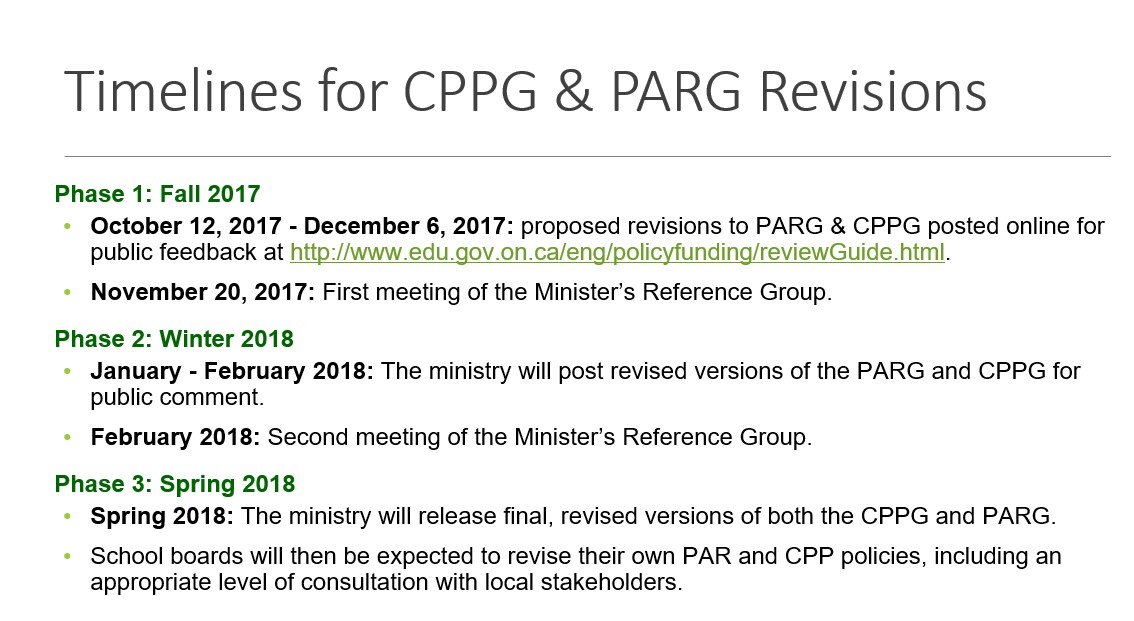Province considers changing school closing process - again
The province is consulting with the public on new guidelines for accommodation reviews. The new guidelines – to be implemented in the spring of 2018 – will replace the streamlined process for closing schools first announced in March, 2015.

The proposed new process will:
- re-introduce a longer public consultation
- require school board staff to provide three possible options before the process begins
- re-introduce a requirement that boards consider the impact of the possible school closing on the community
According to the Ministry, the proposed new Pupil Accommodation Review Guidelines, will create “a stronger, more collaborative process that better promotes student achievement and well-being and better recognizes the impact of school closures on rural communities.”
While some new funding was announced in the spring ($20 million – which ranged from $0 to $1.4 million per board – to support improved programming and support services, operations, transportation and supports for e-learning), no substantial changes to the funding formula, which might give boards more capacity to respond to communities’ recommendations to keep schools open, are planned .
Details of proposed changes
While the province consults on new guidelines, no new school closing processes may be undertaken. The final guidelines will be announced in March of 2018.
Revising Pupil Accommodation Review (PAR) timeframes:
- Extending the current minimum PAR timeframe beyond five months;
- Eliminating the minimum modified PAR timeframe of three months; and/or
- Further extending time-frames under specific circumstances, such as if new closure recommendations are added mid-way through the accommodation review process.
Introducing minimum requirements for the initial staff report by requiring school boards to include:
- At least three accommodation options (a recommended option, an alternative option and a status quo option).
- Information on how accommodation options will impact:
- School board budget;
- Student programming /achievement;
- Student well-being; and
- Community and/or economic impact.
Promoting community input in the PAR processes by requiring:
- School boards to invite elected municipal representatives and municipal staff to a meeting to discuss the initial staff report;
- School boards to disclose municipal participation / non-participation in PAR and Community Planning and Partnership (CPP) processes;
- A broader role for trustees throughout the PAR process, beyond ad hoc membership of Accommodation Review Committees, hearing public delegations, and making the final decision; and
- A participatory role for secondary student representatives in PARs involving secondary schools.
Reforming the PAR administrative review process by:
- Extending the timeframe to submit an administrative review petition from 30 to 60 calendar days; and
- Reviewing the signature thresholds and requirements for launching an administrative review request.
Developing ministry supports, such as:
- A PAR toolkit to standardise type and format of initial staff report information;
- A template for use by community partners to engage boards with proposed alternatives to school closures or other proposals for community use of schools; and
- New support for the review and validation of initial staff report information and community proposals by independent third parties.
To read the discussion guide for the new proposed new guidelines, click here.
To submit your feedback on the proposed guidelines, send an email to [email protected] with the subject line “Revising the PARG and CPPG.”
